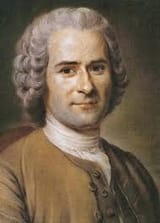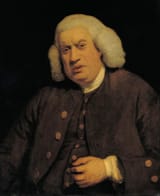(1/2)
>>24515629
>>24517095
Sorry for the late reply, wonderful to see there’s interest
>>24514180
>He absolutely believes it's a better situation
Only to an extent of balance, but in shifting to ‘situation’ you speak of a political situation, not of the psychological disposition of natural man’s type of self-regard. I may have been ambiguous, in the last sentence of my last reply, (
>>24514160) but as I was initially responding to OP’s focus on amour de soi meme with its negation of amour propre, I consider it a blatant oversimplification to such an extent that it is false. Both ‘loves’ matter, equally. This is, I believe, Rousseau’s political judgment.
If I remember correctly, it was in Emile where he said something about the goodness of the natural moral virtue of self-respect, and I'm not trying to say there's no merit to the good things in the state of nature such as perfect liberty and equality. Though, this characterization, I think, is limited. Think of what Rousseau echoing Pufendorf said about the natural state: indigent (needy) but free - as opposed to Hobbes, where we were indigent and unfree. But we should not forget “needy” here. For Rousseau, what is a real natural ‘need’: food. And food is important. What is a real artificial ‘want’: luxury. And luxury is not that important, only people tend to forget this through the overindulgence in amour propre, which is THE cause for revolution.
>>24514484
Not to denounce the first discourse indirectly, but find me an 18th-century commentator who did not bash the dreary effects of luxury. I think the whole early modern era is tainted with this idea (for good reason, of course) and Rousseau was no exception. What does he say in the beginning of the first discourse: it was revolution (Rome’s sacking) that put Europe back into barbarism, and what caused this revolution? Luxury (also for Greece). They forgot what’s needed: food; agriculture.
>when is amour-propre ever viewed favorably? Your portrayal of Rousseau as a levelheaded devil’s advocate sounds completely discordant from what Rousseau has written.
Devil’s advocate? What is this diabolical ascriptions am I making? See his Considerations on the Government of Poland (1772), or see his Constitutional Project for Corsica (1765). Compare it with what he says halfway in the second part of the second discourse. I quote for you, first, from the Project for Corsica, then, the Second Discourse:
1. “I am so fully convinced that any system of commerce is destructive to agriculture that I do not even make an exception for trade in agricultural products. If agriculture were to maintain itself under this system, the profits would have to be shared equally between the merchant and the tiller of the soil.”
2. “The invention of the other arts must therefore have been necessary to compel mankind to apply themselves to agriculture”








